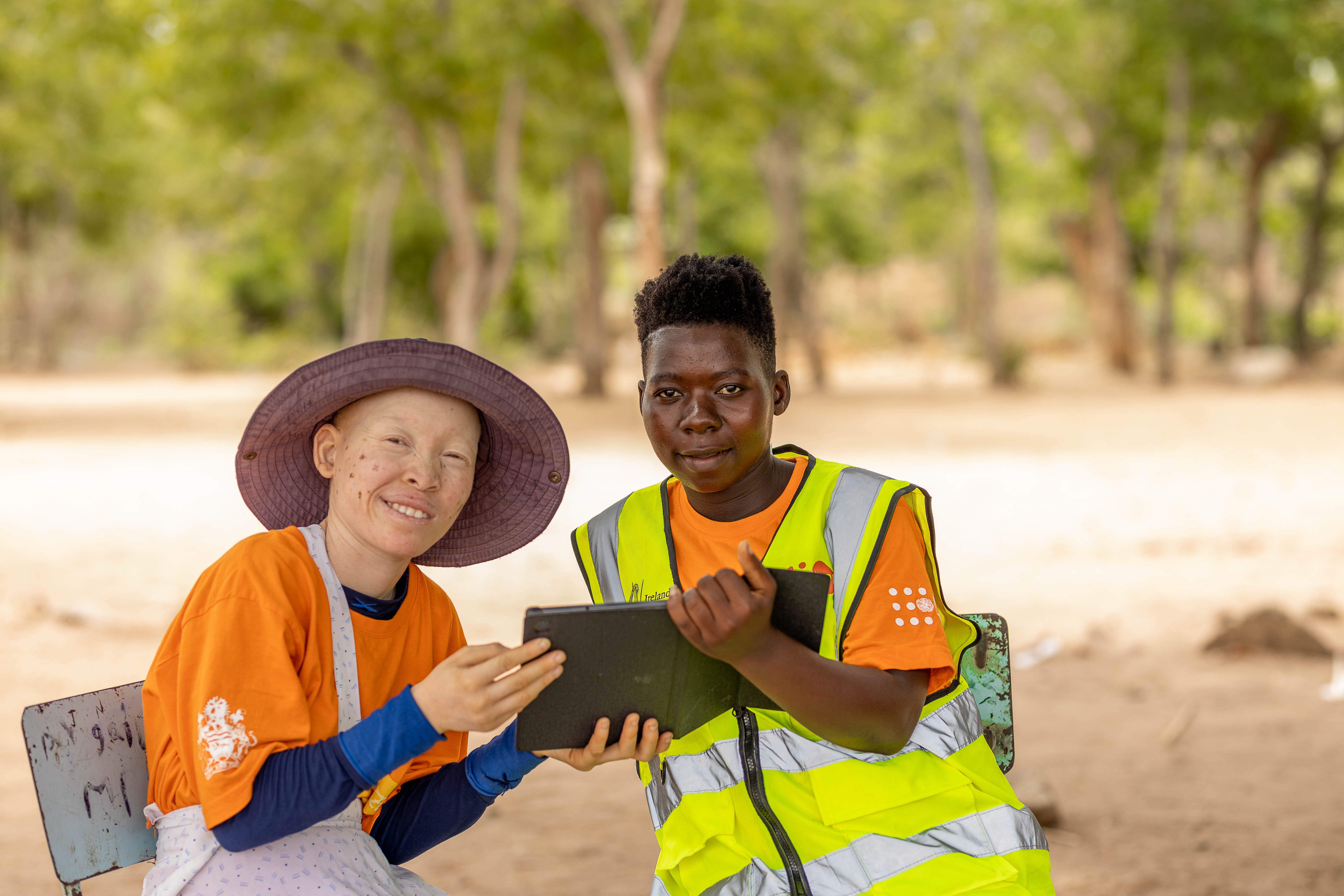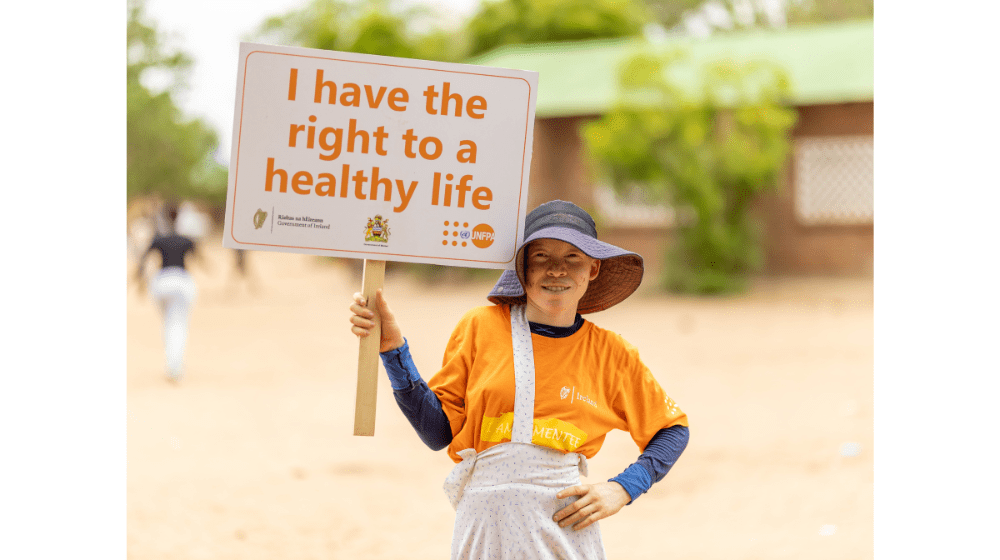Princess Dinala's life was marred by discrimination from the very start. Born with albinism, she faced rejection not just on the netball court but in every facet of her daily existence.
Princess explains:
Every time I asked my friends to play netball with them, they declined saying that since my eyesight was bad, I would make them lose the game as I would be passing the ball to the opposing team
Her unique skin tone was perceived as a curse, a stigma that left her isolated and grappling with depression.
But in June of this year, Princess discovered a glimmer of hope in an unexpected place — a safe space established under the TEENS project, generously funded by the Government of Ireland. The project aimed to create a haven for young women and girls like Princess who felt marginalized due to factors beyond their control.
Upon joining, Princess faced initial resistance from her peers who were hesitant to embrace her differences. However, the safe space mentor, Gladys Enock, recognized the need for a broader conversation. She kicked off a session on human rights, using smart phone tablets to showcase videos depicting communities that celebrated individuals with albinism.
“For many, it was the first time to use a tablet for learning,” explained Gladys. “Later, the discussions were lively as the videos had attracted their attention.”
The tablets, a novel addition to the safe spaces, not only simplified learning but also broadened the girls' horizons, exposing them to ideas beyond their immediate communities. The interactive session proved transformative, shifting the girls' perspectives on albinism and fostering a deep understanding of the importance of respecting human rights.

For Princess, the safe space became a catalyst for change. Empowered and emboldened, she found her voice and the strength to confront the discrimination that had plagued her for years.
"I now realize that I have the power to change things by speaking against such behaviors," she declared.
The impact extended beyond combating discrimination. The tablets facilitated knowledge exchange on running small businesses and managing village savings and loans. Linley Rahman, a 19-year-old mentee, admitted to never having used a smartphone before. The newfound digital knowledge, coupled with mentor-guided internet searches, transformed their village savings bank, turning losses into profits.
As a result, Linley, a single mother, utilized her earnings to buy onions for resale, turning a profit that fuelled her ambition to return to school.
“I got pregnant when I dropped out of school as my parents couldn’t afford paying school fees. Now that I have a small business, thanks to the support I got from the safe space, I plan to use my profits to pay for my school fees next year.”
Joseph Scott, Communications Analyst


